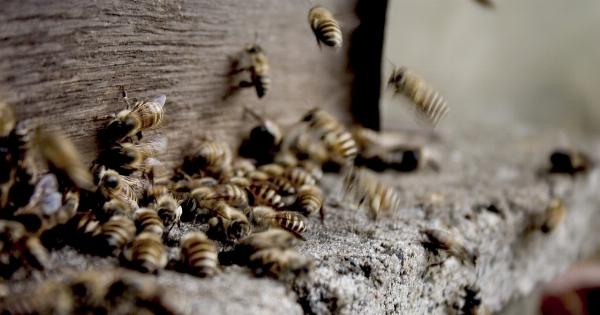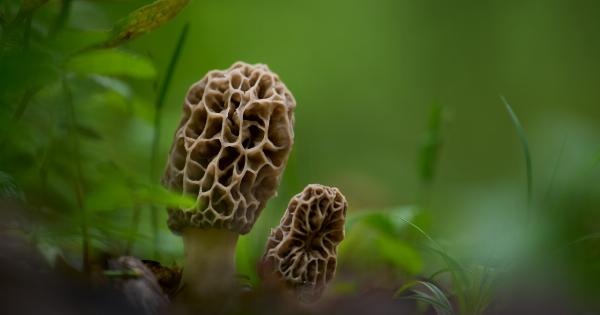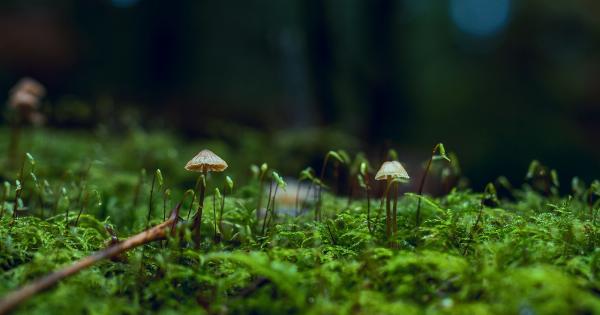Cancer, one of the most dreaded diseases of our time, is also one of the biggest challenges to modern medicine.
While there has been some progress in the development of targeted therapies and immunotherapies for the treatment of cancer, it still remains a major health issue worldwide. However, nature has given us some of the best weapons to fight against the deadly disease and fungi are one of them. Yes, you heard it right! Fungi, the unsung heroes, are being widely studied for their potential to fight cancer.
What are fungi and how do they work?
Fungi are one of the largest groups of organisms on earth, comprising over 1.5 million known species. They are widely distributed and can be found in almost every habitat, from soil to water to air.
Most of the fungi we encounter are beneficial, playing important roles in nutrient cycling, decomposition, and medicine. The medicinal properties of fungi are due to the presence of secondary metabolites, which are bioactive compounds produced by the fungi to defend against predators and compete with other microorganisms.
These secondary metabolites can have a powerful effect on cancer cells.
Types of fungi with anticancer properties
There are several types of fungi that have been found to possess anticancer properties, some of them are:.
1. Cordyceps sinensis
Cordyceps sinensis is a fungus that grows on caterpillar larvae in the high-altitude regions of Asia. It has been used in traditional Chinese medicine for centuries to treat a wide range of health problems including cancer.
Studies have shown that Cordyceps sinensis has the ability to induce apoptosis (programmed cell death) in cancer cells, inhibit tumor growth and metastasis, and enhance the immune system. It has also been found to increase the efficacy of chemotherapy and radiotherapy.
2. Ganoderma lucidum
Ganoderma lucidum, also known as reishi, is a mushroom that grows in the wild in Asia and North America. It has been used in traditional Chinese medicine for over 2000 years to enhance longevity and treat a variety of ailments including cancer.
Studies have shown that Ganoderma lucidum has the ability to suppress the growth of cancer cells, inhibit tumor angiogenesis, and enhance the immune system. It has also been found to increase the efficacy of chemotherapy and radiotherapy.
3. Grifola frondosa
Grifola frondosa, also known as maitake mushroom, is a mushroom that grows in the wild in Japan and North America.
It has been used in traditional Japanese and Chinese medicine for centuries to enhance immunity and treat a variety of ailments including cancer. Studies have shown that Grifola frondosa has the ability to stimulate the immune system, inhibit tumor growth and metastasis, and enhance the efficacy of chemotherapy and radiotherapy.
4. Agaricus blazei
Agaricus blazei, also known as Himematsutake, is a mushroom that grows in the wild in Brazil and Japan. It has been used in traditional Brazilian and Japanese medicine for centuries to enhance immunity and treat a variety of ailments including cancer.
Studies have shown that Agaricus blazei has the ability to activate the immune system, inhibit tumor growth and metastasis, and enhance the efficacy of chemotherapy and radiotherapy.
5. Inonotus obliquus
Inonotus obliquus, also known as chaga mushroom, is a mushroom that grows on birch trees in the wild in Russia, Korea, and some parts of Europe.
It has been used in traditional Siberian and Russian medicine for centuries to enhance immunity and treat a variety of ailments including cancer. Studies have shown that Inonotus obliquus has the ability to activate the immune system, inhibit tumor growth and metastasis, and enhance the efficacy of chemotherapy and radiotherapy.
How do fungi fight cancer?
The fungi help fight cancer in various ways, some of them are:.
1. Apoptosis induction
Apoptosis or programmed cell death is a natural process by which the body eliminates unwanted or damaged cells. In cancer cells, this process is often disrupted, leading to uncontrolled proliferation.
Fungi have been found to induce apoptosis in cancer cells, thereby inhibiting tumor growth and metastasis.
2. Immune system enhancement
The immune system plays a crucial role in fighting cancer by recognizing and eliminating cancer cells. Fungi have been found to enhance the immune system by activating immune cells such as natural killer cells, cytotoxic T cells, and dendritic cells.
3. Angiogenesis inhibition
Tumor angiogenesis is the process by which new blood vessels are formed to supply nutrients and oxygen to the growing tumor. Fungi have been found to inhibit angiogenesis by blocking the formation of new blood vessels.
This can result in the starvation of the tumor and inhibition of tumor growth.
4. Chemotherapy and radiotherapy enhancement
Fungi have been found to enhance the efficacy of chemotherapy and radiotherapy. In some cases, the compounds produced by the fungi can sensitize cancer cells to chemotherapy and radiotherapy, making them more susceptible to the treatment.
Conclusion
Fungi are unsung heroes in the fight against cancer.
Thanks to their secondary metabolites, they have the potential to induce apoptosis in cancer cells, enhance the immune system, inhibit angiogenesis, and enhance the efficacy of chemotherapy and radiotherapy. Further research is needed to explore the full potential of fungi in the treatment of cancer, but the results so far are promising.
As we continue to search for new ways to fight against this deadly disease, it’s important to remember that nature has already given us some of the best weapons.





























